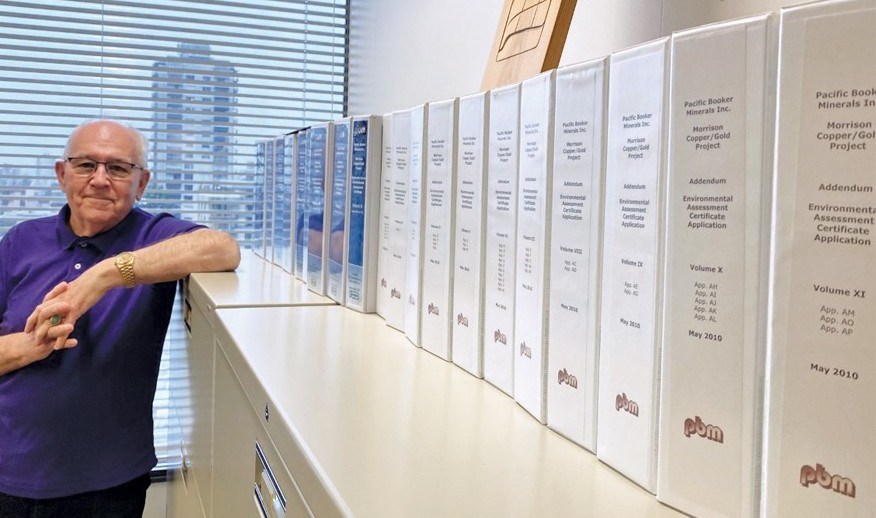At a little over $500 million in capital costs, B.C.’s Morrison Lake copper-gold mine is comparatively small, and the company behind it – Pacific Booker – is also small.
Small enough that it can be kicked around like a political football until it deflates
At least that seems to have been the strategy of the previous BC Liberal government, and the BC Environmental Assessment Office (EAO), which put Pacific Booker through a 10-year review process that ultimately found the project had ticked all the required boxes, and then denied the project a permit anyway.
Shockingly, approval may now hinge on a multimillion-dollar side deal with a small First Nation band, paid for by senior governments.
Following a BC Supreme Court ruling requiring the project to be reconsidered, the Morrison Lake mine continues to languish in a supplemental environmental assessment process under the current BC NDP government – a process so slow and capricious that former BC Green Party leader Andrew Weaver, who retired from politics, is still bothered by it.
“The question is, ‘Has this company been treated fairly?’ And in my view, and in the Supreme Court’s view, the answer is unequivocally no,” Weaver told BIV. “And that is why I raised it. It’s a question of fairness.”
The copper-gold property is located at Morrison Lake, which drains into Babine Lake. The projects has now been at the environmental assessment stage for 18 years, since 2003.
After spending 10 years and $10 million going through that process, the company was notified in 2012 that, despite an initial positive recommendation by the EAO’s executive director that the project posed no adverse environmental risks, and that the duty to consult First Nations had been fulfilled in good faith, the application was denied.
Considering the steps the proponents have taken, the only barrier to a permit appears to be the opposition to the mine by a tiny First Nation with just 440 band members.
Weaver believes it was rejected not on environmental grounds, but on political ones.
The Lake Babine First Nation has been unwavering in its opposition to the project, based on concerns about the impact of the mine on salmon.
A former chief publicly threatened to revoke his people’s support for the Prince Rupert Gas Transmission line if the provincial government approved the mine. That pipeline project was originally tied to the $36 billion Pacific NorthWest LNG project, which was abandoned.
A lawyer representing the Lake Babine First Nation confirmed to BIV February 11 that nothing has changed from the First Nation’s perspective.
Governments prefer to decide aboriginal rights and title through negotiation, which gives them some say, as opposed to the courts, which give them none.
But that should not mean that the usual standards of procedural fairness should be set aside, Weaver said.
“I understand the importance of Indigenous engagement,” Weaver said. “We pushed for UNDRIP [the United Nations Declaration on the Rights of Indigenous Peoples]. On the other hand, business certainty is critical. And if you’re just changing the goalposts every time you do something, that scares business away.”
Bill Bennett, the now-retired former B.C. minister of energy and mines, acknowledged that First Nation opposition partly explains his government’s reticence to approve the Morrison mine project.
“It was a combination of very stiff Indigenous opposition, but also, I believe, some not unreasonable queasiness on the part of the Environmental Assessment Office,” he said.
In November 2020, Pacific Booker’s mine lease, which was set to lapse, was reinstated. The company is still writing letters back and forth to the EAO, trying to get clarification on what is expected in terms of supplemental studies and processes.
A taxpayer-funded settlement with the small Lake Babine First Nation may hold the key to unlock the mine, however.
The BC NDP government and federal authorities have hammered out an agreement with the Lake Babine First Nation that sets the stage for a treaty of sorts.
In September 2020, they signed a deal that provides the Lake Babine First Nation with $43 million in funding and 49,400 acres (20,000 hectares) of land valued at $150 million. It also commits to “a road map” for implementing self-governance and collaboration on “major land and resource decisions.”



